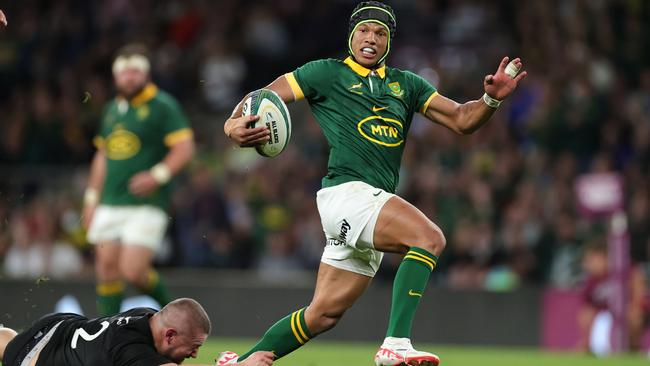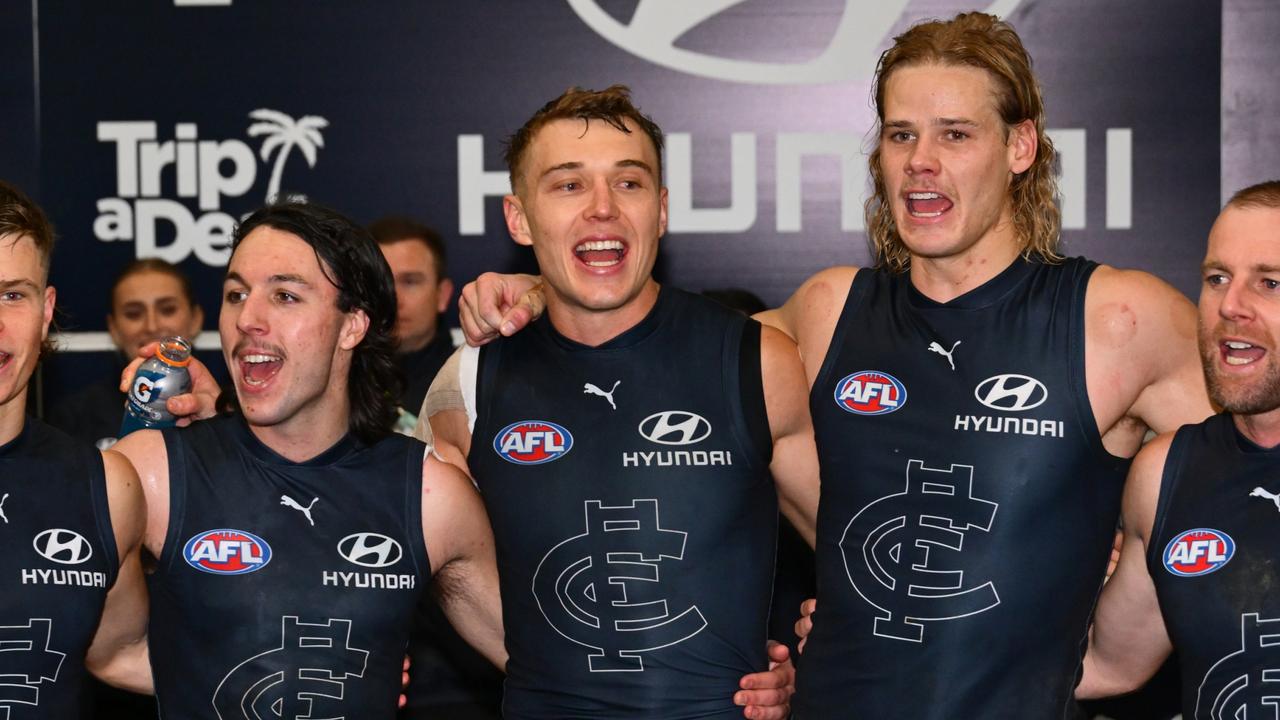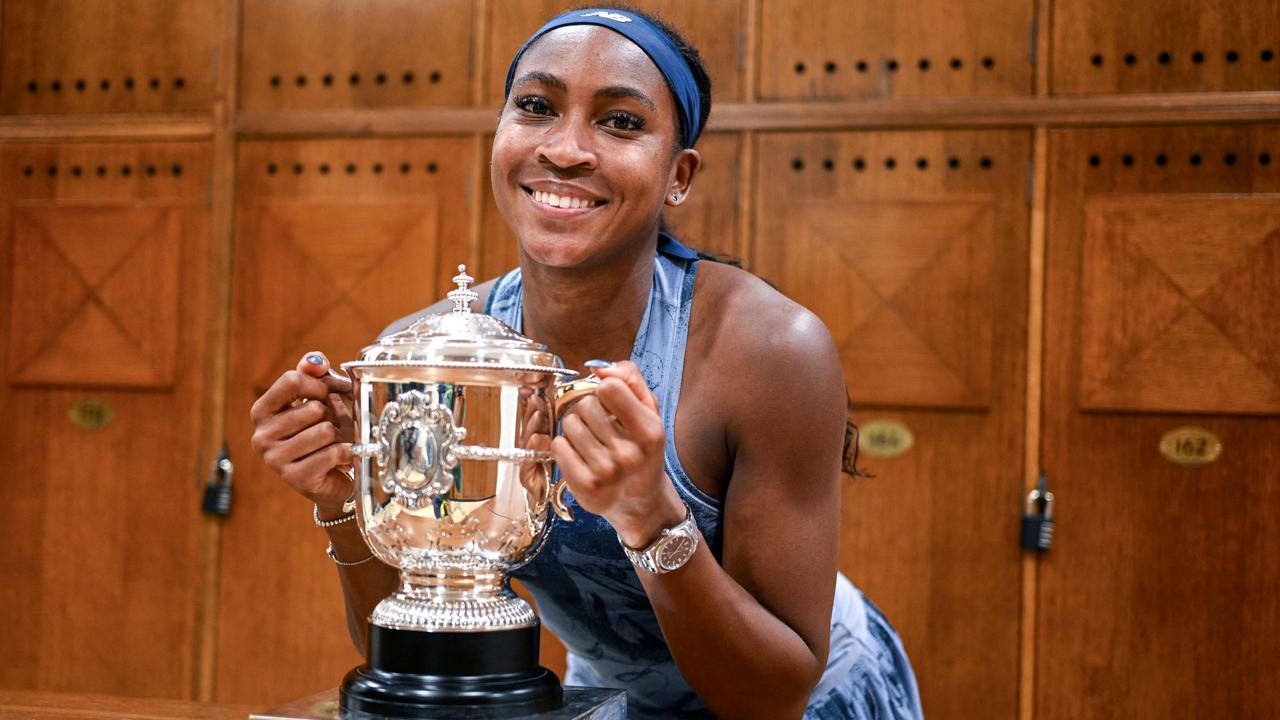Will the power be enough to earn the glory at the Rugby World Cup?
South Africa has reminded every other World Cup contender that in terms of power and depth, no team matches them but is it enought to lief the Webb Ellis Cup?

It was something the game had never seen. Five minutes into the second half at Twickenham nine days ago seven South Africa replacement forwards began to mass near the halfway line. Two minutes later the “Bomb Squad”, as this team within a team have become known, ran on to the pitch. As pre-World Cup statements go, it was striking.
At precisely the same point four years before, the Springboks had released a pre-World Cup photograph of 21 players in their changing room. Twenty of the 21 were topless and most of them so ripped they could have taken part in the World Bodybuilding Championships in the UAE on their way home from Japan. Jesse Kriel, at the centre of the photo, would have won a second gold medal.
Now here they were against New Zealand, hauling off seven of the pack that for 46 minutes had pulverised the All Blacks. Twenty-one points clear, there was no need for the Bomb Squad to do anything other than carry on where the starters had left off: their rivals were already down to 14 men and performing way below their normal level.
The game petered out to a 35-7 Springboks victory and all that remained was the image of the replacements galloping into the fray. South Africa had reminded every other World Cup contender that in terms of power and depth, no team matches them.
To some, seven forward replacements were an affront. “What South Africa did is totally against the spirit of the game and certainly against player safety. The South Africans are just abusing the bench at the moment,” the former Scotland coach Matt Williams said on the Dublin-based radio show Off The Ball. The Springboks had broken no law and the “spirit of the game” is not easily defined.
That Dublin noticed South Africa’s innovative use of replacements was not surprising. On the third weekend of the World Cup, Ireland will have to contend with the Springboks’ power. On an RTE podcast the former Leinster second row Mick Kearney shot the breeze with former Ireland hooker Bernard Jackman about the Bomb Squad.
“Rassie Erasmus [South Africa’s director of rugby] strikes me as a direct character,” Kearney said, “so I’d be interested to know whether he sits down the six or seven forwards that are going to be coming off and says to them, ‘Look, you have 40, 50 minutes to burst your bollocks here and then we’re going to bring on the other six mutants off the bench.’”
“Seven mutants,” corrected Jackman. “Seven mutants, yeah, seven mutants,” Kearney agreed.
Williams’ point about the Springboks’ replacement strategy being “against player safety” is, at the very least, arguable. Studies have shown the greater proportion of rugby injuries happen in the second half, as players become fatigued. When South Africa replace seven of their pack while the All Blacks replace six, they are both reducing the chances of players suffering injury. It’s also worth noting that the Bomb Squad Boks won their battle against diminished, off-colour rivals by just seven points, 14-7.
Is this pursuit of power creating a doping culture within the sport? After recent positive tests for the Wales scrum half Rhys Webb and the South African fly half Elton Jantjies, the question needs to be addressed. Webb tested positive for growth hormone, Jantjies for clenbuterol, a fat-burning drug that raises your metabolic rate. Both of these prohibited drugs can be used to build muscle.
With so much focus on South Africa’s steamrolling forwards, it was easy to miss the truly sublime brilliance of Canan Moodie in the midfield. His balance, pace and skill are off the scale and though he is only 20, he already looks the game’s most exciting player. For all his brilliance, Moodie hasn’t got the power of his rival for the No 13 shirt, Kriel, and so may not get in the Springbok team for the biggest games at the World Cup. That would be an indictment of what rugby has become.
Consider these numbers: the South Africa-New Zealand game at Twickenham lasted 107 minutes, the 27 extra minutes consumed by injuries and the time it takes the match officials to review incidents. Of that 107 minutes, the ball was in play for 33 minutes. Excepting Pieter-Steph du Toit, 14 South Africa forwards each had 17 minutes of ball-in-play action. Gladiatorial does not begin to describe it.
No one though can remain blind to the toll being paid by players for a game that still insists on power over athleticism, collision over creativity. Already long, the injury list lengthens each day.
Once the ankle and knee supports are pulled on and the warriors enter the arena, they will then expose themselves to the most common of all rugby injuries, concussion. Willie Stewart, professor of neuropathology at the University of Glasgow, has looked at the impact of brain injury in rugby for more than a decade and believes the game has to change. “I expect it to change after this World Cup,” he said. I also suspect that World Rugby will start promoting heavily the more accessible forms of the game. I can see touch rugby becoming a globally marketed sport and that would be welcome.
As a tournament the 2023 Rugby World Cup promises more than all that has gone before. In a pool with both South Africa and Scotland, who can be sure that Ireland, the world’s top-ranked team, will even get to the last eight? England won’t feel any certainty about escaping a pool that includes Argentina and Samoa and Wales will fret about their opening game against Fiji.
Because of their power and size, the Springboks are favourites. The game has already become the brutal spectacle that Stewart alludes to. It would be nice to think that when the World Cup reaches its climax, we would be talking not of Springbok power but of Moodie’s sublime talent.
Right now the odds favour the guys with the power.
The Times





To join the conversation, please log in. Don't have an account? Register
Join the conversation, you are commenting as Logout